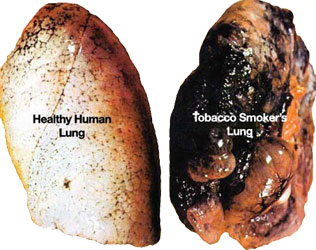Smoking: A Dangerous Habit
It’s common knowledge that smoking is harmful.
We’ve known it since 1950 when three important epidemiological studies provided the first powerful links between smoking and lung cancer. We knew it in 1965 when the Surgeon General mandated that cigarettes required a warning label on the package. A move that was immediately followed by one of the most successful marketing campaigns in history.

Image Credit: Don Draper, Mad Men. © AMC. All rights reserved.
Did you know: cigarette companies spent $9.6 billion on advertising in 2012 alone.
How do I know it was so successful? We are still teaching the harmful effects of cigarettes 50 years later.
This month, we are joined by ADO Medical Director Dr. Howard Zahalsky to discuss the dangers of smoking.
Cigarette Facts
According to the DrLarryFranks.Com, as of 2013 18% of Americans are smokers. We are on a downward trend, thankfully. In 2009 21% of Americans were smokers and back in 1974 51% of men and 41% of women smoked. Smoking kills 480,000 people each year, and 20% of all deaths in the US are thought to have smoking as a contributing factor. Additionally, when factoring in the cost of healthcare and lost productivity, it is estimated that each pack of cigarettes costs our society $18.05.
Cigarette smoke has over 4,000 chemicals in it, 69 of which are known carcinogens. And that’s just the smoke! The cigarette itself can have an additional 3,000 chemicals in their construction, including:
- Butane – lighter fluid
- Toluene – an industrial solvent
- Ammonia – you use that to clean your toilet
- Methanol – an ingredient in rocket fuel
- Carbon monoxide – you know that one
- Cadmium – used in batteries
- Sewer gas – gross
Smoking can affect more than your health- it can also affect your appearance. Immediate short term effects include bad smells, acne and stained teeth and fingers. Long term effects include stroke, blindness, gum disease, cancer, heart disease, emphysema, infertility and impotence, and poor muscle tone.

This is you lung on cigarettes
Source: National Institute on Drug Abuse
Respiratory diseases only contribute to about 25% of deaths from cigarettes. The tar and chemicals that you inhale don’t stay in the lungs. They travel around the body. The rate of heart disease, breast cancer and colon cancer is much higher among smokers. And let’s not forget the almost 1,000 people each year killed by cigarette-sparked house fires.
Are “Vapes” Safer?
So cigarettes are too dangerous, but electronic cigarettes are safe, right? Do they have the same chemicals as cigarettes…?
Yes and no. They have fewer chemicals than traditional cigarettes, but they still have lots of chemicals that you don’t want to be inhaling, such as:
- Formaldehyde – embalming fluid
- Diethylene glycol – antifreeze
- Nitrosamine – a known carcinogen
Not really something you want to bring into your body if you don’t have to. Plus, they still have nicotine, which is addictive.
“The biggest problem I have with ‘vapes’ is the flavors,” explains Dr. Zahalsky, “There’s blueberry, there’s grape, there’s strawberry… I even saw a cotton candy flavor! Who do you think they’re targeting?” Laws have been slow to regulate electronic cigarettes, “So younger and younger children, attracted to the flavors, are becoming nicotine addicts.”
Side Effects of Nicotine
- Increase the risk of blood clots in your body
- Raise blood pressure and heart rate
- Lightheadedness
- Sleep disturbances
- Irritability and dizziness
Nicotine addiction is very hard to break. Every time you use vapes or cigarettes you put yourself at risk for addition.
Quitting is for Winners
At least where cigarettes are concerned. Now that you’ve decided to quit, there are several options.
Gum
Some people are able to wean themselves off smoking using nicotine gum. Nicotine gum, like Nicorette, can help alleviate the anxiety, nausea and headaches associated with nicotine withdrawal. “The biggest problem with the gum,” cautions Dr. Zahalsky, “is that it still contains nicotine, so you really aren’t solving the problem – your switching one addiction for another.” As a result, most people go back to smoking cigarettes.
Medication
Medications, such as Chantix and Zyban, go straight to your brain and they help you stop smoking. They work by blocking the receptors in your brain that desire nicotine so that you should, theoretically, be able to stop smoking without any side effects. These medicines do have their own side effects, so they should be taken under the supervision of a doctor. About 70% of people are able to quit after completing a course of these medications.
“Nicotine Addiction is Only Half the Battle.”
About half of all quitters still go back to smoking within a year. “The nicotine is only half the battle,” explains Dr. Zahalsky. Habits that form over months and years are ingrained. You may recognize some of these common behaviors:
- Having a cigarette with a morning cup of coffee,
- Having a cigarette every time a smoker goes to the bar
- Having a cigarette every time a smoker gets in the car
“Unless you break the habits that go along with smoking, you will never successful break the habit.” Dr Zahalsky recommends:
- If you have a cigarette with your morning coffee, have your coffee at Starbucks or someplace where you can’t smoke (you’ll be able to afford it, now that you’re no longer buying cigarettes)
- Stop drinking. Seriously. There’s no way around that one.
- If you smoke in the car, take the bus.
You’ll notice the positive effects of quitting almost immediately after. You’ll smell better, food will taste better, and you will (literally and metaphorically) breathe easier.
How Activ Doctors Online Can Work for You
Personal Health Record
As part of our Personal Health Record (PHR), we include a health tracker. You can track your breathing test to monitor how well your lungs are working as your start and stop smoking, and track your blood pressure – which can dramatically improve when you quit.
Second Medical Opinion
If you have a smoking related illness or need to talk to someone about better options to quit, our Online Second Medical Opinion could work for you.
e-Consultation
If your doctor participates, you can use our e-Consultation to chat with your doctor which can be helpful to get you through the difficult times to stop smoking.